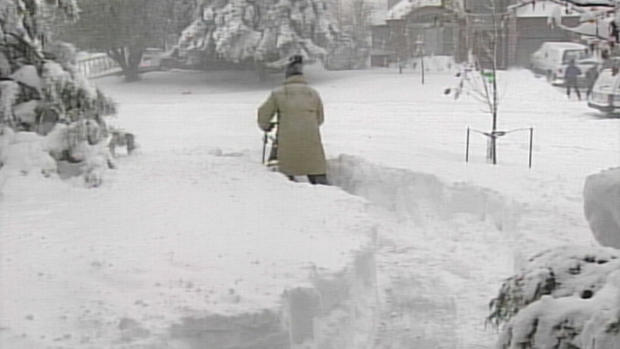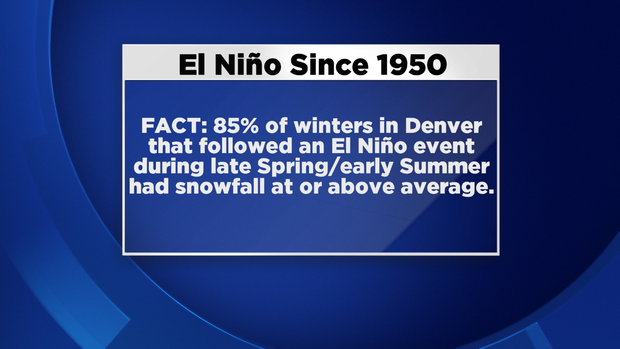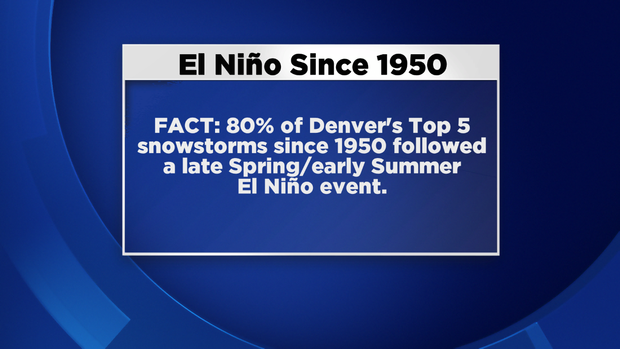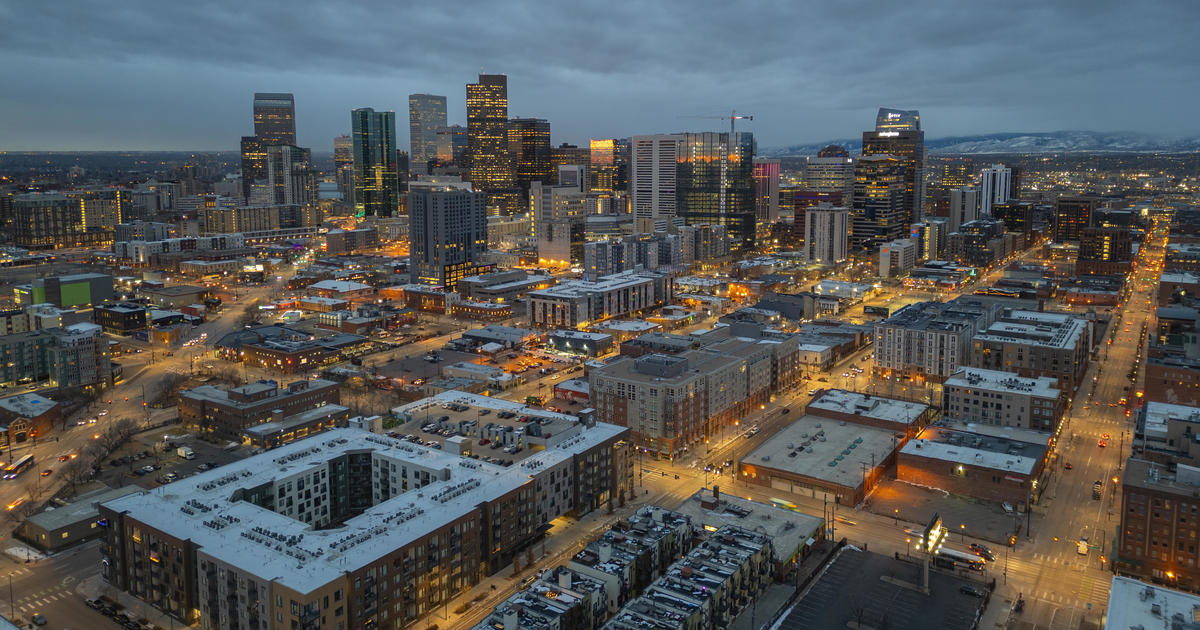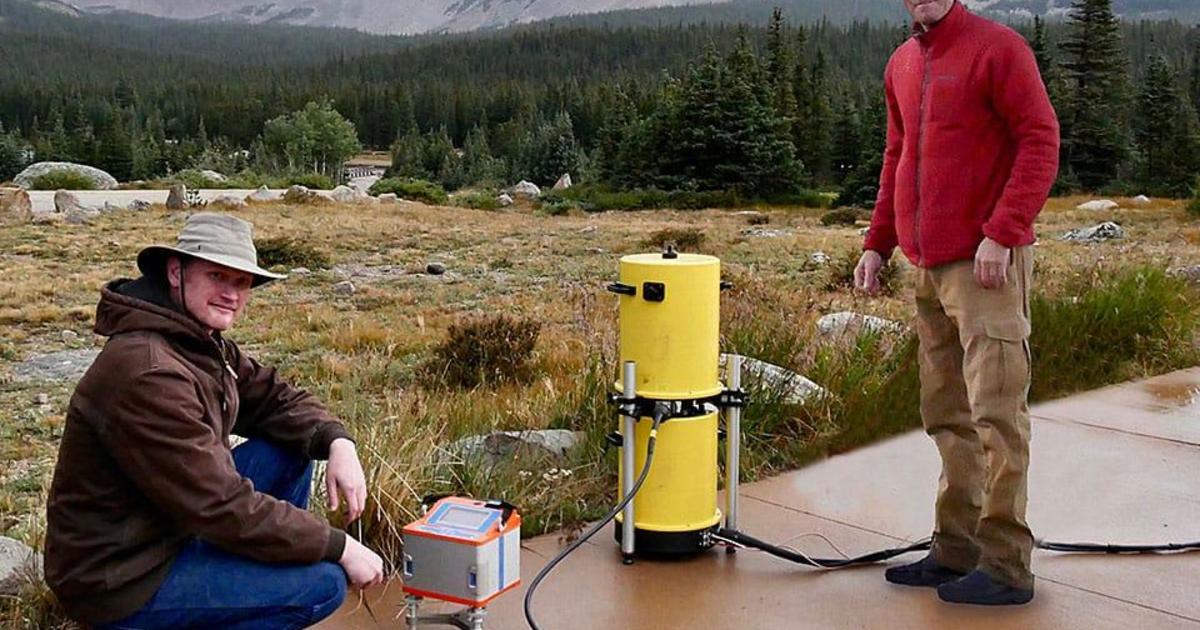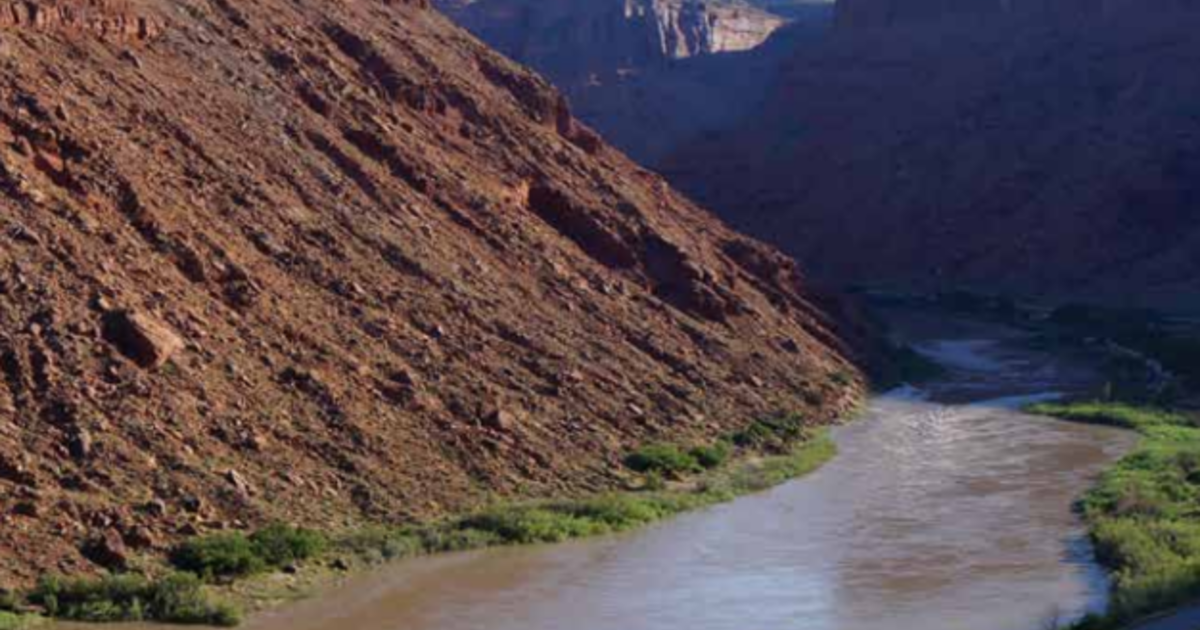Denver Weather History Shows Wet El Niño Summers Can Bring Record Snowy Winters
DENVER (CBS4) - Forecasters say an El Niño that developed in March may continue to strengthen heading into fall and winter.
Some meteorologists think this episode of El Niño could even rival a record set in 1997.
El Niño is a warming of sea surface temperatures in the central and eastern equatorial waters of the Pacific Ocean which can have an impact on global climate patterns.
This is significant because history shows that when El Niño is present during late spring and early summer, parts of Colorado can be particularly snowy the following winter, including Denver and the Front Range, if El Niño continues.
Since 1950 there have been 13 years with an active El Niño during May, June and July.
Five of those 13 seasons rank in Denver's Top 10 snowiest since 1950 and Top 20 snowiest since 1882.
1958 - 99.3 inches (#1 since 1950, #2 since 1882)
1972 - 94.9 inches (#2 since 1950, #4 since 1882)
1982 - 81.6 inches (#6 since 1950, #12 since 1882)
1983 - 80.9 inches (#7 since 1950, #14 since 1882)
1991 - 79.0 inches (#10 since 1950, #19 since 1882)
March 17-19, 2003 - 31.8 inches
December 24, 1982 - 23.8 inches
October 24-25, 1997 - 21.9 inches
November 26-27, 1983 - 21.5 inches
December 20-21, 2006 - 20.7 inches
While this article is by no means a forecast for Denver's potential snowfall this coming winter, history shows that when El Niño is active during May, June and July, there's a decent chance to see at least "average" winter conditions should El Niño last into the fall and winter.
The following list shows the 13 years since 1950 when El Niño was active during May, June and July. It also shows Denver's snowfall for the winter season that followed.
1953 - 41.5 inches
1957 - 57.1 inches
1958 - 99.3 inches
1965 - 46.9 inches
1969 - 65.8 inches
1972 - 94.9 inches
1982 - 81.6 inches
1983 - 80.9 inches
1987 - 62.3 inches
1991 - 79.0 inches
1992 - 60.4 inches
1997 - 72.1 inches
2002 - 61.8 inches
Denver's average annual snowfall over the entire climate record (1882-2014) is 57.1 inches.
NOTES ABOUT THE 13 ACTIVE EL NIÑOS DURING MAY, JUNE, AND JULY
Meteorologist Chris Spears writes about stories related to weather and climate in Colorado. Check out his bio or follow him on Twitter @ChrisCBS4.
